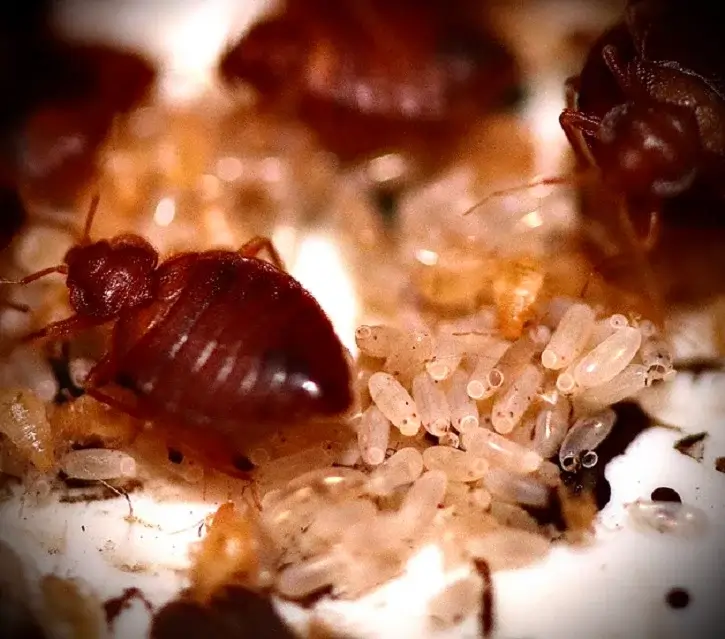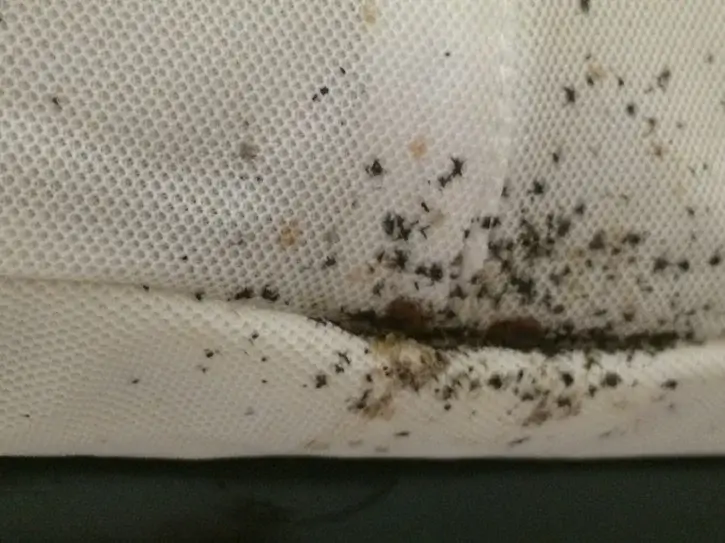Beeline Pest Control
Fast & Effective Bed Bug Treatment – Sleep Soundly Again!
Don’t let bed bugs disrupt your sleep! Beeline Pest Control provides expert bed bug treatments that eliminate infestations quickly and prevent them from returning—so you can rest easy in a pest-free home.
Reclaim your comfort with Beeline Pest Control — Call us today!
No Hidden Charges
Get a FREE Quote Today

Bed bugs can survive months without feeding, making them expert hide-and-seek champions in your home!
What Are Bed Bugs?
Bed bugs are small, flat, wingless insects that feed on human and animal blood. Ranging from 1 to 7 mm, they move quickly but cannot fly or jump. They are brown but turn red after feeding. Females lay up to 500 eggs in their lifetime, with eggs hatching in 6-10 days. Nymphs molt five times before adulthood, a process taking about 35 days. Adults can survive months without food but die in extreme temperatures. Though they don’t spread disease, their bites cause itching and irritation, especially at night.
Bed bugs typically reside in mattresses, bed frames, headboards, and other furniture that is close to where people sleep. They typically hide in cracks and crevices, such as along the seam of the mattress or box springs, or cracks in the headboards or baseboards. You can find bed bugs in electrical outlets, picture frames, and behind wallpaper. They can also be found in cracks and crevices in walls, floors, and ceilings.
No Hidden Charges
Bed Bug Prevention Tips
Keep Your Home Clean & Clutter-Free
Regularly vacuum floors, carpets, and furniture to remove hiding spots for bed bugs.
Be Cautious with Secondhand Items
Avoid used furniture, especially mattresses, which may harbor bed bugs.
Inspect & Protect When Traveling
Check hotel rooms for signs of bed bugs, keep luggage off the floor, and wash clothes in hot water after returning home.
What Are The Signs of Bed Bug Infestations?
Check for bed bugs after traveling or if you suspect exposure. The most obvious sign is red, itchy bites in a line or cluster, usually on the face, neck, arms, or hands. Look for rust-colored stains, small dark spots, or actual bugs in mattress seams, bed frames, and nearby furniture. Use a flashlight to check dark areas, inspect luggage after trips, and avoid bringing in used furniture without checking. Bed bugs are excellent at hiding and can spread quickly if not addressed. If you suspect an infestation, avoid sleeping in the affected area and contact a professional exterminator for proper treatment.
Protect Your Home Today!
Don’t let pests take over your space! Beeline Pest Control offers expert bugs and pests removal, keeping your home safe and sting-free. Call now for a free inspection and a customized treatment plan to get rid of pests for good!
No Hidden Charges
Reviews from Texas Residents
Nothing motivates us more than a pat on the back from our clients!
Beeline Pest Control
Contact Us Today!
Keep your home safe with expert pest control from Beeline Pest Control. Call now for a free inspection and custom treatment plan!
No Hidden Charges
Get a FREE Quote Today
Frequently Asked Questions
How long do bed bugs live?
Adult bed bugs can live for up to 18 months without feeding. This means that they can survive even if you think you’ve gotten rid of them.
Should I throw out my mattress if I have bed bugs?
No. You don’t need to throw out your mattress if you have bed bugs. A pest control professional will be able to treat your mattress and get rid of the infestation.
Where do bed bugs live?
Bed bugs can live anywhere in your home, but they’re most often found in beds, sofas, and chairs. They can also be found in cracks and crevices in walls or floors. If you think you have bed bugs, it’s important to inspect your entire home for signs of an infestation.
Are bed bugs hard to get rid of?
Yes. Bed bugs are difficult to get rid of because they’re experts at hiding. They can also live for several months without feeding, so they can survive even if you think you’ve gotten rid of them. If you think you have bed bugs, it’s best to call a pest control professional.
What are bed bugs attracted to?
Bed bugs are most attracted to warmth, blood, and carbon dioxide. They often congregate near where people sleep so they can have easy access to food.
Do you get bed bugs because your home/office is dirty?
No. Bed bugs are not attracted to dirt or grime and can be found in both clean and messy homes. They’re attracted to warmth, blood, and carbon dioxide, so they often congregate near where people sleep.
How do I know if I’ve been bitten by bed bugs?
Bed bug bites usually appear as small, red bumps on the skin. They’re often found in a line or cluster, and they can be itchy and painful. If you think you’ve been bitten by bed bugs, it’s important to inspect your bedding for other signs of bed bugs.
What do bed bugs look like?
Adult bed bugs are small, brown, and flat. They’re about the size of an apple seed, and they can vary in color from light brown to almost black. Bed bug nymphs (juveniles) are smaller than adults and are typically white or pale in color.
How do I know if I have a bed bug infestation?
One of the most common signs of a bed bug infestation is finding small red bites on your skin. If you notice bites on your skin, it’s important to inspect your bedding for other signs of bed bugs. Another sign of an infestation is finding small, dark spots on your sheets or mattress. These spots are bedbug feces, and they’re a good indicator that there are bedbugs present.



